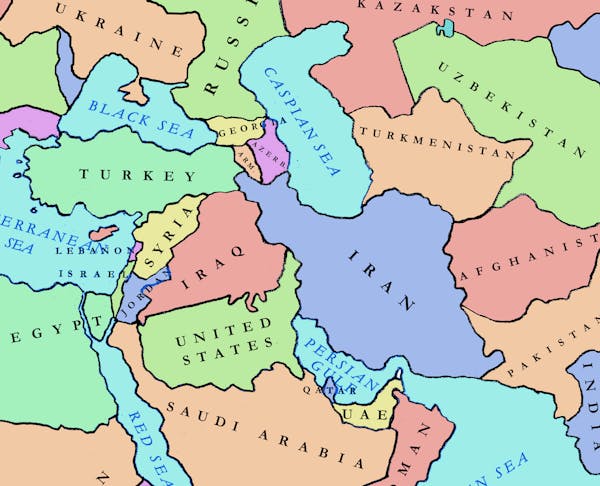President Obama's effort to end any attempt by Iran to build a nuclear weapon would be difficult enough even without congressional interference. Trying to keep the P5+1 group of nations together given the diverse interests of Russia, China, Germany, France and the European Union is challenging. Iran itself is a proud and suspicious theocracy whose negotiators are constantly being reined in by hard-liners. Add to this mix an Israeli prime minister who opposes the framework agreement reached, and a Congress that insists on raising doubts about the president's authority, and you have easily the most difficult diplomatic challenge any president has faced in the 21st century.
Other members of the P5+1 do not face a separate-but-equal legislative body motivated by prerogative and politics. In most cases, there is no requirement to submit a multilateral agreement to a parliamentary body. These countries were no doubt shocked when 47 senators sent a letter to the Iranian government questioning the president's executive authority to conclude an agreement and stating that the next president could quickly nullify it.
Senate Foreign Relations Committee Chairman Bob Corker, a Republican from Tennessee, did not sign that letter, and he has now taken his committee in a more positive direction. By a 19-0 bipartisan vote, the committee has sent to the Senate a bill that would enable Congress the right to review the final agreement during an expedited 30-day period during which time the president could not remove sanctions against Iran. A bill to disapprove could be vetoed by the president and a failure to override would mean the president's authority to remove sanctions in accordance with the agreement reached would be clear. This convoluted approach may be the best the White House could expect in an era when politics seems to start at the water's edge.
There are three themes that seem to be motivating Obama's opposition in Congress. First, the possible agreement with Iran is constantly characterized in the press as a "legacy" issue for the president. Many Republicans are dedicated to preventing this president from achieving anything resembling a legacy. In my view, any president would consider the goal of preventing a nuclear arms race in the Middle East of transcendent importance against which any personal legacy would be trivial.
Second, there is a worry, shared by Israel, that removing sanctions will strengthen the Iranian economy, giving Iran an easier path to a bomb after this agreement runs its course in a decade. No doubt this is a risk. However, proponents would argue that it is much more risky to allow the Iranians to continue their nuclear research in secret with no verification regime in place. There is also the possibility that an Iran engaged in the global economy would have too much at stake to revert to bomb-building.
Third, the president's critics say that an Iran spreading conflict in Syria and Yemen cannot be trusted. The Sunni-Shia wars are destabilizing the entire region, and some characterize this as a symptom of a feckless foreign policy. Yet few want to put American boots on the ground or go to war with Iran. Ironically, Iran is bogged down in an endless morass in Syria defending a government that is doomed ultimately to failure. The same may be true in Yemen, where support for the Shia Huthi is certainly stretching its resources.
It is a familiar political tactic to link consideration of a nuclear agreement with Iran to its behavior elsewhere. But we are engaged in this negotiation to stop Iran from building a bomb that would make that nation even more dangerous and unpredictable. If this agreement achieves the objectives laid out in the framework — and the devil is in the details — we will be able to verify its provisions; and if the Iranians violate them, Security Council sanctions will be automatically reimposed.
In my experience, it is easy for members of Congress to hide behind the prerogative of their branch of government or to politicize an issue that has not yet reached their desk. Corker, to his credit, has now set the table for a serious consideration of the substance of an agreement that could prevent a nuclear arms race in the Middle East, sustain a P5+1 coalition that has demonstrated the effectiveness of near-universal sanctions and reinforce the American commitment to Israeli security (a commitment the president has reiterated and will no doubt be reiterated by Congress).
If the final agreement meets these objectives, I have confidence that this will ultimately turn out to be a legacy for both branches of our government — a further demonstration that, as Churchill observed, "Americans will always do the right thing … after they have tried everything else."
J. Brian Atwood chairs the Global Policy Area at the University of Minnesota's Humphrey School of Public Affairs and is a former assistant secretary of state for congressional relations.
